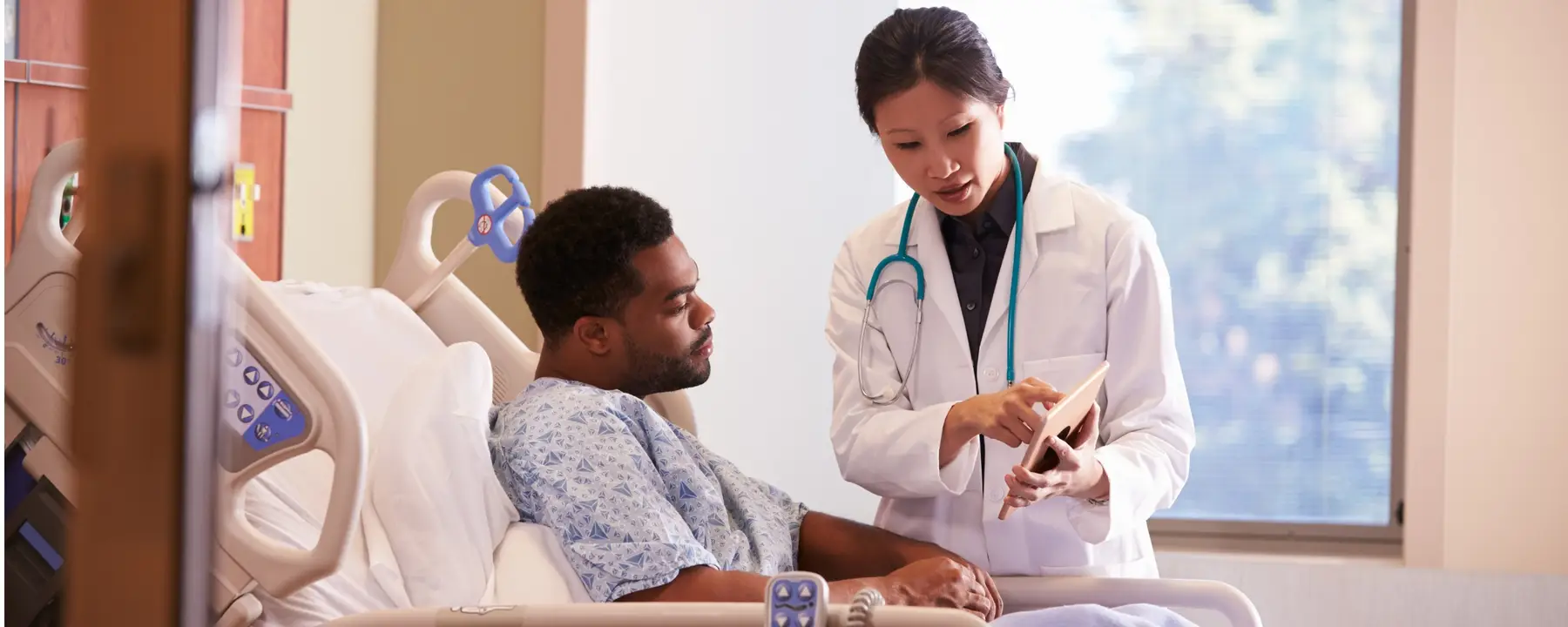Building opportunities for better-informed health-care decisions
Every day, millions of patients in the United States and around the world make health-related judgments that affect their lives, and they would benefit from information that helps them make better decisions. That’s why improved access to their health data, matched to the best evidence that medical research can offer, is so critical.
Research shows that clinical decision support (CDS), that is, processes for enhancing health-related decisions and actions using evidence-based information, reduces costs, improves quality, and reduces medical errors in clinical settings. However, these benefits do not adequately take into consideration health decisions and outcomes that matter most to patients. To change this, we’ve been working on behalf of the Agency for Healthcare Research and Quality (AHRQ) to promote CDS that addresses both clinician- and patient-centered decisions, actions, and outcomes. We call this patient-centered clinical decision support (PCCDS).
Establishing a Learning Network for Patient-Centered Clinical Decision Support
The PCCDS Learning Network is a four-year, AHRQ-funded cooperative agreement the purpose of which is to inform and connect PCCDS stakeholders. The network’s goal is to advance activities aimed at improving evidence-based care decisions for patients, their clinicians, and their caregivers. An example might be promoting smartphone applications that make it easier for patients and their care teams to identify and implement effective options for chronic conditions like diabetes.
To help organize the wide-ranging field of patient-centered care and the efforts of the PCCDS Learning Network, we’ve engaged multiple stakeholders in developing an Analytical Framework for Action. The framework orients our discussions with patients, clinicians, policymakers, and others to determine where important work has already been done, where there are gaps in the development of PCCDS activities, and where there are opportunities to do more.
Why Patient-Centered Clinical Decision Support and Not Just Clinical Decision Support?
What differentiates PCCDS from CDS is its focus on the patient’s viewpoint and how patients can use evidence to inform their own care decisions in partnership with clinicians and other caregivers. For example, evidence shows that patients with a family history of diabetes value information that helps describe their genetic risk and steps toward prevention. In the case of hypertension, patients value information about self-management and monitoring.
A PCCDS intervention for blood-pressure monitoring would involve a patient gathering home blood-pressure readings and transmitting those readings to a doctor, so the resulting electronic health record would highlight any worrying results (as determined by a patient’s care plan). The PCCDS would deliver recommended care plans for both the patient and the clinician to consider and discuss together.
Similarly, for a patient living with chronic pain who is on pain-management drugs daily, information about daily dosing and pain relief may be useful. A smartphone application, shared between patient and provider, could reinforce safe morphine-dosing information, provide pain- level self-monitoring tools, and link to other pain-management resources.
The following factors are central to making PCCDS recommendations:
- Knowledge: Evidence-based research findings, like comparative effectiveness research and patient-centered outcomes research
- Data: Patient-generated health data, patient-reported outcomes and preferences, and patient-specific social/environmental/genetic/cultural factors as they affect individual patient health
- Use: Patient (and/or caregiver) involvement in consuming and applying the decision support provided (for example, information directed at patients/caregivers or for shared decision making)
Making Resources Available to Patients and Providers
The PCCDS Learning Network recently launched an online resource center with the goal of disseminating resources and ongoing initiatives in PCCDS. The resource center is an ever-growing library of links within key categories:
- Evidence: Findings and evidence-based guidelines to enhance clinical care that could be implemented via PCCDS
- Standards/Tools: Rules, methods, and utilities that could be used for structuring or delivering PCCDS interventions
- Artifacts/Repositories: PCCDS interventions such as tools to gather, transmit, and provide feedback and guidance on patient-generated health data and collections of such artifacts
- Initiatives/Literature: Material describing development, implementation, and results from specific PCCDS interventions or approaches more broadly
Anyone can contribute to the resource center via the PCCDS Learning Network’s website.
Promoting the Science of Patient-Centered Clinical Decision Support
The PCCDS Learning Network has also launched a special section, Better Decisions Together, in eGEMs, an online and open-access journal that features peer-reviewed articles about decision support and electronic health data. The special section will disseminate compelling PCCDS findings, methods, and strategies to shrink the gap between research and use in patient care. The first call for papers ends on February 16, 2018.
The future work of the PCCDS Learning Network will focus on highlighting efforts that leverage PCCDS in areas like opioid use and the prevention of chronic diseases.
- Agency for Healthcare Research and Quality (AHRQ)

